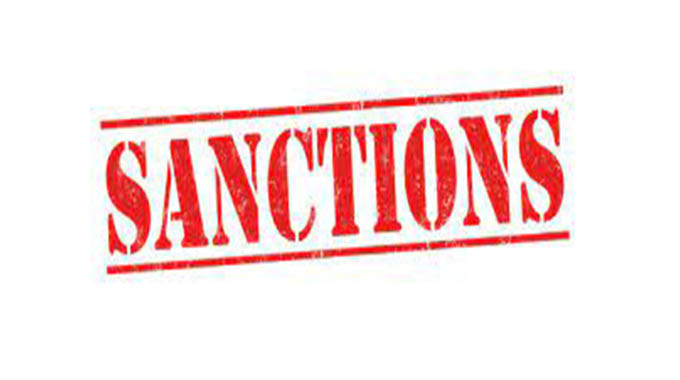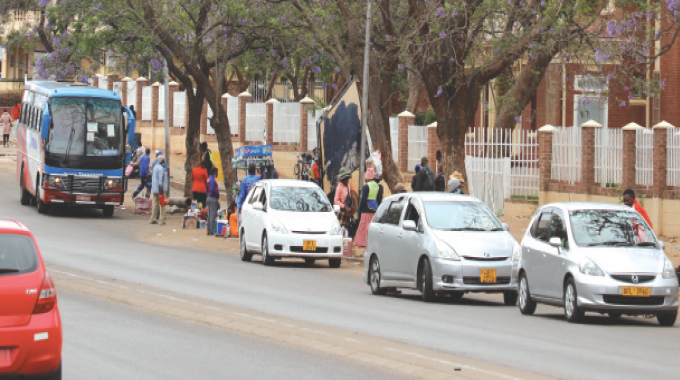COMMENT: Let’s all unite in denouncing punitive sanctions

YESTERDAY marked 43 years since the raid and attack of Mkushi and Freedom Camps in Zambia by the racist Rhodesian Regime led by Ian Smith.
The attacks, under “Operation Gatling” were a retaliation after Zipra forces downed an Air Rhodesia Viscount plane as it left Kariba for Salisbury in February 1978.
According to Historian Mr Pathisa Nyathi, the attack was the start of a series of raids that went on intermittently until towards the end of 1979, at a time the Lancaster House talks were in progress, having commenced in September of the same year, following the Commonwealth Heads of State and Government Meeting (CHOGM) in Lusaka.
Thousands of lives were lost in the raids including refugees and Zipra, the Zapu military wing, recruits. While the camps were owned by Zapu, there were also Umkhonto wesizwe, the African National Congress of South Africa’s armed wing, combatants who lost their lives at camps since Zapu and ANC collaborated in operations.
The memory of those who lost their lives at the hands of the brutal attack by the Smith regime, which was eventually dislodged and Zimbabwe attained her Independence in 1980, should inspire countrymen to be resolute in the defence of the nation’s interests.
Their lives and efforts were not in vain but marked the beginning of a long journey towards self-determination and prosperity for the majority black Zimbabweans who were disenfranchised by the colonialists.
Besides Mkushi and Victory Camps, the Rhodesian regime bombed a number of Zipra and Zanla, (Zanu military wing) camps where thousands of sons and daughters of the soil lost life and limb.
The anniversary of the Mkushi bombing comes before the Zimbabwe, Sadc countries observe the Sadc Anti-Sanctions Solidarity Day on Monday.
The regional bloc set aside October 25 as to protest the illegal sanctions imposed on Zimbabwe.
Since August 2019 when the decision was reached, during a Summit in Dar es Salaam, Tanzania, the Sadc Anti-Sanctions Solidarity Day also received support from the African Union, the Non-Aligned Movement and countries outside Africa like China, Russia and others.
The fruits of liberation can only be fully enjoyed if Zimbabwe is allowed to pursue her developmental trajectory without any hinderances like sanctions and undue foreign interference.
In the spirit of the fighters of the liberation, departed and alive, Zimbabweans must unite in denouncing the punitive sanctions and calling for their immediate lifting.
The Anti Sanctions Solidarity also come at a time when the UN Special Rapporteur on Negative Impact of Unilateral Coercive Measures on Human Rights, Ms Alena Douhan is in the country to assess the negative impact of the illegal sanctions.
She arrived in Harare on Monday and made her first port of call at State House for a meeting with President Mnangagwa to kickstart her 10-day visit.
The high-profile visit by Ms Douhan, follows the United Nations Human Rights Council resolution 34/13 of 2017, which stresses that unilateral coercive measures and legislation were contrary to international law, international humanitarian law, the charter and norms and principles governing peaceful relations among states.
The resolution highlights the fact that these sanctions in the long-term result in social problems and raise humanitarian concerns in the states targeted.
During her visit, Ms Douhan will also engage various stakeholders from the Government to civil society and afterwards present a report to the UN Human Rights Council during its 51st Session in September next year.
As she engages various stakeholders in the country, Zimbabweans must be unambiguous on the need for the lifting of sanctions that have throttled the country for two decades.
Since the illegal sanctions were imposed in 2001, Zimbabwe has lost an estimated US$42 billion, losing an estimated US$4,5 billion in donor support annually for more than two decades.
The country lost US$2 billion in IMF, World Bank, and African Development Bank (AfDB) loans which could have helped in developing infrastructure, as well as losing commercial loans amounting to US$18 billion which could be extended to the private sector and other companies.
Zimbabwe experienced a US$21 billion reduction in GDP over the past two decades.
Just as the sons and daughters of Zimbabwe took up arms to fight to dislodge colonialism, Zimbabweans must continue the fight and denounce all actions that work against the country’s progress.











Comments